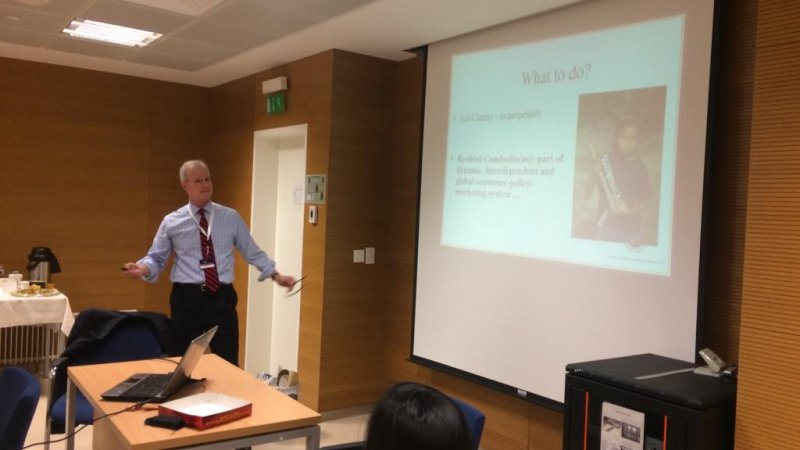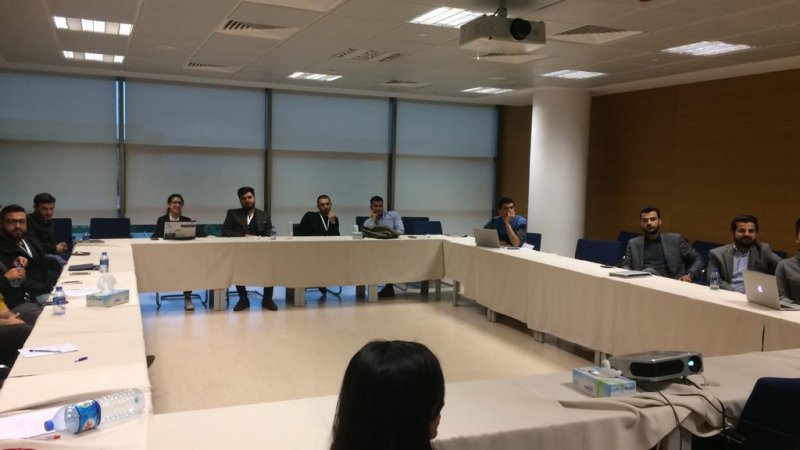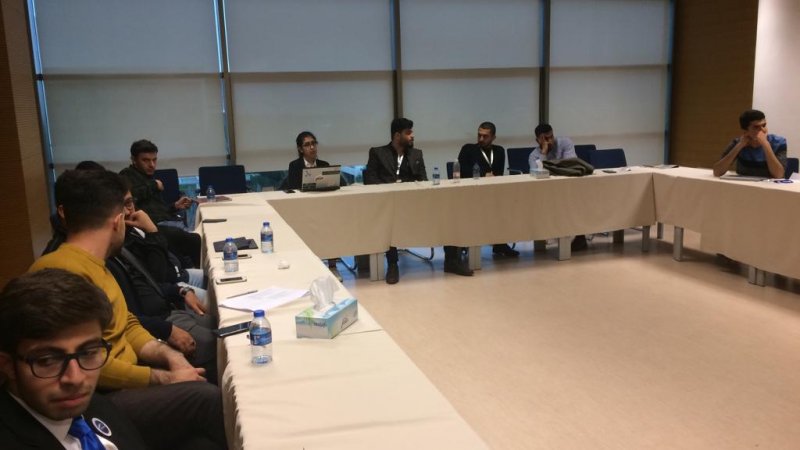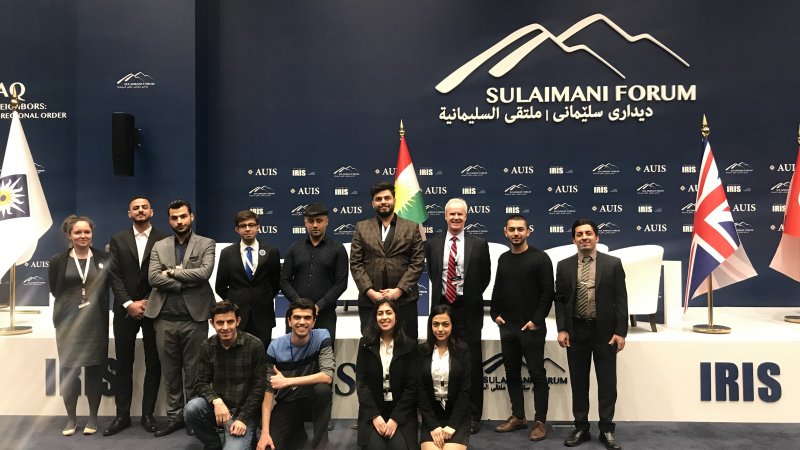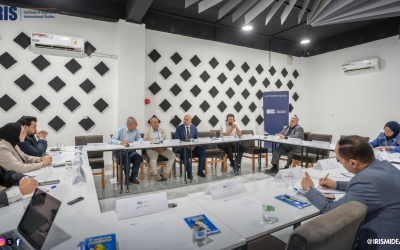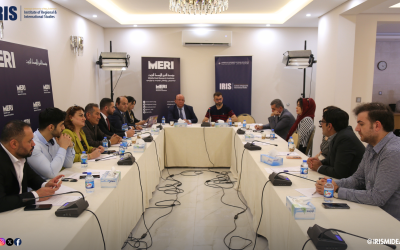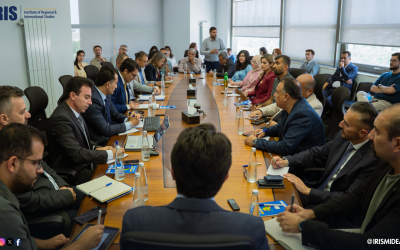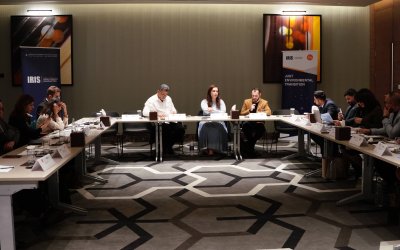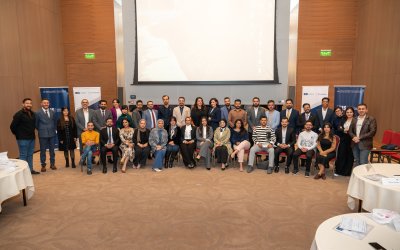On Thursday, March 7, 2019 IRIS hosted Dr. Clifford Schultz, Professor of Marketing at Loyola University Chicago, for a discussion with AUIS students in coordination with the sixth annual Sulaimani Forum. His lecture, “Toward Sustainable Peace, Prosperity and Well-being: Comparative Lessons from Recovering Economies,” focused on the complex dynamics of socio-economic development in post-conflict economies. He used previous examples from his fieldwork in southeast Asia, and Cambodia in particular, to highlight the various aspects of civic engagement, government-business-NGO relations, and consumption and demand factors that contribute to resilient and inclusive communities and sustainable well-being. He stimulated student discussion by using his previous fieldwork to lay the groundwork for future research in the Kurdistan Region of Iraq.
In the case of Cambodia, Dr. Shultz evaluated the various geographical, historical, economic, and institutional structures that contributed to the overall wellness of rural communities in the country. Relying on a team of local researchers, he completed a market appraisal by conducting interviews with consumers, government agencies, investors, and local stakeholders. While the data he collected provided valuable information on the major determinants of low quality of life in Cambodia, it also allowed researchers to identify core assets that could be used to stimulate the economy--namely agribusiness, labor, and archaeological treasures. After identifying the core potential tourists in the country, he and his team used their data to work with the Ministry of Tourism and tourist agencies to develop the tourism sector in Cambodia, particularly by branding a trip to Cambodia as one stop in a “Wonders of the Region” tour and identifying and marketing archaeological heritage sites.
After giving the overview of his field work in Cambodia, he concluded the discussion with implications for research, policy, and management that could be applied across different regional contexts. He emphasized the importance of understanding the marketing system via multiple measures, including the sources of dysfunction and catalysts to development in specific contexts and the imperative of constructively engaging to promote inclusion, transparency, accountability, and sustainability of local institutions.
Linking his experiences in Cambodia to the local context in the Kurdistan Region of Iraq, he opened a discussion about field work opportunities and encouraged students to accompany him on a preliminary market assessment in locations with populations of varying socioeconomic backgrounds around Sulaimani.

